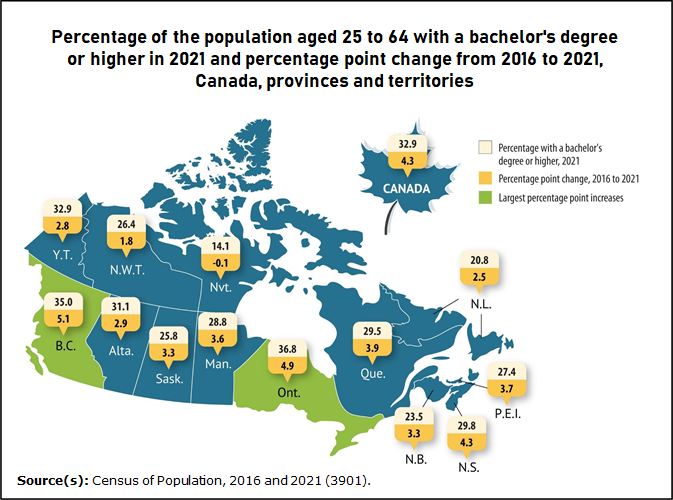|
Diplôme D'études Supérieures Spécialisées (Quebec)
The (, ) is a postgraduate diploma awarded by a Quebec university. It is called "Diploma (graduate level)", "Advanced Diploma" or "Post-Graduate Diploma" in English. In Quebec, the diploma focuses on acquiring the foundations of a specialization in a particular field of study. It generally includes a practical dimension of the theoretical knowledge acquired, with the completion of an internship or a thesis. Admission to a DESS requires a prior university undergraduate degree such as a bachelor's degree. Sometimes, professional experience in the field is required. The DESS consists of 30 credits and is completed in a minimum of one year. The DESS may lead to admission to a master's program. References See also * Higher education in Canada Higher education in Canada includes provincial, territorial, Indigenous and military higher education systems. The ideal objective of Canadian higher education is to offer every Canadian the opportunity to acquire the skills and knowledge ... [...More Info...] [...Related Items...] OR: [Wikipedia] [Google] [Baidu] |
Quebec
Quebec is Canada's List of Canadian provinces and territories by area, largest province by area. Located in Central Canada, the province shares borders with the provinces of Ontario to the west, Newfoundland and Labrador to the northeast, New Brunswick to the southeast and a coastal border with the territory of Nunavut. In the south, it shares a border with the United States. Between 1534 and 1763, what is now Quebec was the List of French possessions and colonies, French colony of ''Canada (New France), Canada'' and was the most developed colony in New France. Following the Seven Years' War, ''Canada'' became a Territorial evolution of the British Empire#List of territories that were once a part of the British Empire, British colony, first as the Province of Quebec (1763–1791), Province of Quebec (1763–1791), then Lower Canada (1791–1841), and lastly part of the Province of Canada (1841–1867) as a result of the Lower Canada Rebellion. It was Canadian Confederation, ... [...More Info...] [...Related Items...] OR: [Wikipedia] [Google] [Baidu] |
Higher Education In Canada
Higher education in Canada includes provincial, territorial, Indigenous and military higher education systems. The ideal objective of Canadian higher education is to offer every Canadian the opportunity to acquire the skills and knowledge necessary to realize their utmost potential. It aspires to cultivate a world-class workforce, enhance the employment rate of Canadians, and safeguard Canada's enduring prosperity. Higher education programs are intricately designed with the perspective of the learner in focus, striving to mitigate risks and assure definite outcomes. According to a 2022 report by the OECD, Canada is one of the most educated countries in the world; the country ranks first worldwide in the percentage of adults having tertiary education, with over 56 percent of Canadian adults having attained at least an undergraduate college or university degree. Higher education systems in Canada In Canada, the constitutional responsibility for higher education primarily rests wi ... [...More Info...] [...Related Items...] OR: [Wikipedia] [Google] [Baidu] |
Postgraduate Education
Postgraduate education, graduate education, or graduate school consists of Academic degree, academic or professional degrees, certificates, diplomas, or other qualifications usually pursued by higher education, post-secondary students who have earned an undergraduate education, undergraduate (Bachelor's degree, bachelor's) degree. The organization and structure of postgraduate education varies in different countries, as well as in different institutions within countries. The term "graduate school" or "grad school" is typically used in North America, while "postgraduate" is more common in the rest of the English-speaking world. Graduate degrees can include master's degree, master's and doctorate, doctoral degrees, and other qualifications such as graduate certificate, graduate diplomas, certificates and professional degrees. A distinction is typically made between graduate schools (where courses of study vary in the degree to which they provide training for a particular profess ... [...More Info...] [...Related Items...] OR: [Wikipedia] [Google] [Baidu] |

